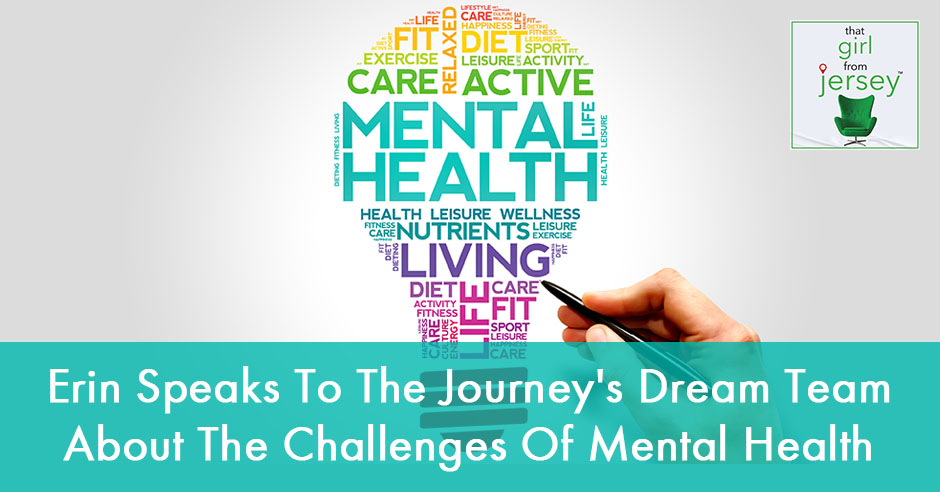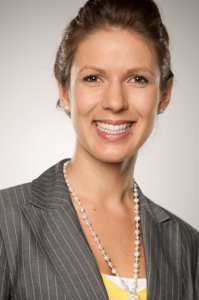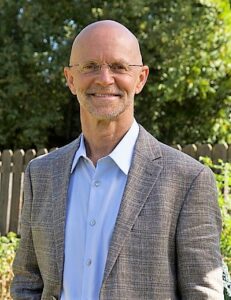
Dreams do come true even when you go through so many tough challenges. In this episode, we learn more about Journey’s Dream – their tools, their mission, and what they need to keep their dream alive. To fully grasp the idea of today’s topic, it is recommended you tune in to a previous episode with Author Mitzi Montague-Bauer (episode 9). Today, Erin speaks with Journey’s “mighty team” where Mark Hattas is very candid about his mental health challenges and his path to success.
—
Listen to the podcast here:
Erin Speaks To The Journey’s Dream Team About The Challenges Of Mental Health
I’m with a few of my favorite people. It’s the team at Journey’s Dream. We have Mitzi and we have Breaha, we have Mark and we have Rex. We’re going to dive right in. Mitzi, you and I have chatted before and you have a beautiful book out, entitled Journey. Your son, Journey, tell a little bit about who he is and what he’s inspired everybody to do?
Journey is my son and Rex’s son, Breaha’s brother. He was a brilliant, loving, quirky human being who began having trouble navigating his world in college. After four years of struggling, he stepped off a building and died. All through his symptomology, we were all searching endlessly for solutions for a doctor or treatment that would provide a different prognosis than what we were told. I always believed he would get well. The shock of his death was mind-numbing as you can imagine. Shortly after that, we began wondering, what would have happened if we’d had the solutions that I had aggregated by the end of his illness, if I had had those in the beginning when he was more willing to receive help? That is for me where Journey’s Dream was born from. It’s that desire to have all the resources, the ones that we know about and the ones we don’t know about available and accessible.
We go in a much deeper context with your story in the book and Journey’s story. For more information, check out the episode with Mitzi because this quick overview won’t do that justice. Another interview to check out is my interview with Mark Hattas. Mark built up a tech company $20 million, why don’t you tell us?
Nine months after selling the business, I started to have experiences where my reality started to fall apart. The things that I knew to be true were challenged. I ended up in a psych ward after about a week of that. At the end of the week, the doctor was discharging me and he said that there was no care and didn’t know what caused it. I’d be on medication most likely the rest of my life.
How did you take this news?
I was genuinely shocked and it didn’t resonate as true. How could it be that this thing that happened has no explanation and that there’s no cure and I’ve got to take these drugs? He was the authority at the time. I had a very high respect for him as an individual and his practice. I left confused. My heart was saying there’s got to be a way but the message was there’s not.
This leads us to a not for profit company that all of you created. Rex, why don’t you tell us a little bit about how you put all of these wonderful pieces together? How did you all got together?
It was divine intervention. That’s the bigger scope. Breaha, would you share what the story is about how we came together? I know Mark and I met through Journey’s tribulations and challenges. We were just starting to collaborate on developing a business and then Journey went through his process and that’s what brought us to Journey’s Dream.
I certainly can speak to it a little bit, Erin. There was a sense I had all along that Journey and I were here on this earth to do something together. There were many layers of shock and grief when he died. One of them was, “Where’s my friend? We’re here to do something.” We hadn’t figured out what it was yet. I know what it is now. I’m here to help change the narrative on mental illness and here to help bring solutions to people who need them. I’m so grateful to have the coolest people here doing this with me. Mark and dad as he had said, we’re working together to develop a healing program, educational program. We realized that there was a need to have a side of philanthropy to it. It evolved to be what we are all passionate about for all of our reasons and supporting people who have mental health challenges.
How do you work with people? What’s the process? Is there a formula? Is there a retreat? Is there some pretty music? There are no two people the same. No two minds are the same. Medication is fine or not fine depending on the person. What do we think?
What we believe is all people can get fully healthy first and foremost. To continue on from where we left off with the doctor and my story, I did find pathways to health and wellbeing. I’m off all medication, I have been for over four years. Not that medication is good or bad because honestly, without it I might’ve harmed myself or somebody else. In fact, there was a suicide attempt after the third hospitalization because I was so terrified that I might hurt somebody that I thought it’d be better if I was gone. What I realized after that attempt was if I’m going to live, I’m actually going to live. I went and told my doctor after three years, “I need to find somebody new.” He was shocked and said, “Why would you do that?” I said, “Because you don’t believe I can get well. I’m going to go find someone who will.” One of the things we’re doing is we’re building a practitioner network so that people can put in their postal code and find people in their area, not just doctors, but it could be massage therapists or spiritual guides, whatever it might be that can support them and believe in their full health and wellbeing and have practices that can do it.
The second thing that we created is a program called Optimal Being and it highlights the process that I went through. Rex, Breaha and Mitzi were all trained in it and it helps to navigate those challenging situations in a way that restores in us our optimal connection with that guidance system that leads us to that next step that’s for our best interests. People who do this, they end up finding that the path leads to happiness and wellbeing. It’s good. We’re not telling them where to go or what to do, but we’re teaching them how to learn to trust themselves and to trust people and soften from where their position is. That starts to open up to what they most need.
When a person has a sense of hope and dignity, they can move forward with their challenges. Click To TweetAlso, Erin, it stimulates in the individual. It restores dignity and hope. Those are the things that are quite often lost. It’s part of the narrative Breaha was speaking of that we need to change. When a person has a sense of hope and has a sense of dignity, then they can move forward with their challenges. The Optimal Being program connects them with that optimal being inside every individual, that internal guidance system that allows them to restore that dignity and move forward in their lives and their challenges.
Who can benefit from the Optimal Being?
There’s a spectrum.
When you say spectrum and we’re also talking on the outskirts of mental health, I think you mean autism.
The range is on one end, you have people that are thriving. They’re performing, things are clicking in their life. Once something might go on in their life that derails them a little bit, do they have the tools to support getting back in touch with who it is they are and move forward. If not, then they start sliding further and further and showing more and more symptoms that ultimately could look like a mental illness. Now, they’re apparently far gone. With the Optimal Being program, wherever they are on it, it’s going to help them get to that. It’s almost like an inner GPS system. We turn that thing on, it leads us to that next step. Wherever they are on here, it’s going to lead them back to that optimal spot.
Legally, medically, that’s not what this is all about. You’re not here to say yes or no to anything or do this, not that. You’re just there to support. Mark wants you to answer clearly. Breaha answers the tough questions. What say you?
Clearly, I can say we do not diagnose. We do not affect or direct on anything related to medication. Someone comes into Journey’s Dream to find additional resources, complimentary support and the Optimal Being is something to augment whatever they are using in their life as a support system. If someone is seeing a medical professional, taking medication, we advise that they continue that relationship through the process of going through Optimal Being and that together, this inner guidance system will ignite in that person a higher level of confidence or reduce stress, probably more clarity. Together they may have a relationship with their professional that will do what exactly is best for that person. We don’t advise when it comes to medication, medical or anything. What we do feel passionate about as an organization and as people is that people have access to all the possible solutions that could help them move to a place of optimal health and wellbeing. If someone is truly suffering and struggling at any place on this range of mental health, we all fall somewhere on this range mental health.
If you’re alive, you’re on this range. I think it’s important to notice. You don’t have to show signs of depression or a pure blissfulness all the time, which could be counter indicative of something else. If you’re fogging a mirror, you’re on this sliding scale somehow and when something bad happens to the most neurologically level-headed person, we’re using this Optimal Being to check in to say, “When the crap hits the fan, do I have the skillset? Out of curiosity, I want to see where I’m out this scale. I want to see if I have the tools in the toolkit to handle what life might come my way.”
Also, people who have perhaps a nutritional imbalance or a chemical imbalance or a brain imbalance or disorder, the program can still support and help them as can the doctors, the practitioners, yoga, trauma therapy people in the practitioner network. The idea is that in so many cases, mental illness, mental health is addressed in silos. You either hospitalize and you take medication and that’s the only path, or medication is evil and you’ve got to go meditate. That’s not the case. Why would we isolate? Here, have a hammer and go build a house. No, here’s a hammer, here’s a saw, here’s a screwdriver, here’s a teacher. Here are all the paths and the blueprints. Which tools are going to serve you best right now to get that house built that you want? That’s what we’re about as an organization and as people.
It’s great and essential. There was a gunman shooting and I was in the salon that very next morning. I’m listening to the other stylist and the woman and they are Monday morning quarterbacks, “How do they not know this man was sick?” Unfortunately, massacres are happening. I don’t even have to notate which one, this could probably for years because this is what your Journey’s Dream is trying to do. We’re trying to get to the root of that. The women were saying, “How could you not know that your coworker was going to do this? How could you not know that your husband ordered flowers for me one day and then he killed twenty people?” Let’s talk about it, not just because of Journey’s Dream. I smirked at the women and the stylists doing my hair smiled because she thought I agreed with them. I didn’t. I was smiling at their ignorance and I thought foolish are those who think they know. I know I don’t know anything. Are there signs? Let’s say we all can’t immediately make everybody enroll in the Optimum program. What can we do? Doing that, the Monday morning quarterback in a hair salon, the woulda, coulda, shoulda, that’s not going to help.
From personal experience, like you, none of us know what’s going on in those particular people’s examples. One of the things that I experienced were thoughts like that, thoughts of ending my life, ending the life of others. Those thoughts were coming up as I was going through the mental health challenge. Thankfully, I didn’t. The scariest thing was when the thought came up and I didn’t feel I had someone I could share it with without them saying, “We get to lock you up.” I just wanted someone to hear me. I wanted to know why this happening. It was a very interesting day. When we push it away, it comes back. What I experienced was it came back even stronger. It’s like a cycle. If it starts with a wide outer loop, it tightens. Until for me, it got to a point where either I’m going to act on this or I’m going to bust or something’s got to move. I began to ask questions.
To yourself?

Mental Health: Journey’s Dream is all about people getting fully healthy first and foremost.
To what this thought was. The thought of harming my family had come up repeatedly and I said, “What does that mean in that word kill?” I had terror from when I was a little kid that I never wanted to go to war. I’d never wanted to hurt anything. I catch flies and throw them outside so that I don’t kill them. I was always this gentle soul that wanted people to live. Why was this happening inside me? When I finally started asking the questions, I got answers and it wasn’t what I thought. It wasn’t the physical death. There was this metaphorical idea in my head. Does everyone have that? Had I not explored it? Would I have gotten to the place? It’s just a metaphor. It doesn’t mean actually do it, but how many people are having that anger, hurt, sadness and rage that’s pushed away? That’s coming up with the same thoughts of shooting up whatever they’re shooting up.
Those thoughts are real thoughts, but they don’t need to move into action if we can support them in conversing about it. One of the potential answers is to open up the conversation instead of being fear-based to have a place where they can come and address that in love and say, “I’m having these thoughts.” Get the real support to see, “Why? What’s happening there?” They will stop all those cycling patterns. I became a master, thankfully. It’s one of the things with Optimal Being. It teaches how to end these cycles. As the cycle started to stop, then they become more subtle and we start listening more. Instead of saying, “I’m not going to feel that anger or rage.” We allow the anger and rage to be felt. It softens instead of being so powerful. It can be quiet. It’s like, “I’m angry because this appears to have happened.” It’s a gentler anger, believe it or not.
Is there a difference between someone who wants to hurt people because of a mental illness?
It’s a mistake for us to even give the impression that we have the answers to those questions. What I would say is that every individual has the answer inside them. What we do is we encourage that person and all people. One, Breaha identified this clearly, is that when a person starts having those experiences like Mark was describing, they feel isolated. If you happen to see a loved one starting to isolate themselves more, reach out to them. Bring the communication out, talk to them about it. Allow the people to have their experience. We’ll all say that in our own way, but give them the freedom to communicate it in a safe environment. They can start to see, “I might need some help.” One of the things you did, Mark, that was so brilliant is that you called your sweetheart and said, “I’m having these hard feelings, these thoughts and these experiences.” What did she say to you?
She’s like, “You’re not going to hurt anybody. Go to bed.”
What did you do?
I went to bed, but that didn’t end the thoughts. Those ended later, but I had the support of love.
It’s refreshing that we can openly talk about it. I appreciate your candor and as a mom, we’ve talked before about this. I have a fourteen-year-old son and what teenager doesn’t isolate themselves? What advice do you have? You have young children. You know it’s coming, meaning the isolation part. They love us, they think we’re cool. All suddenly, we’re like, “We’re not cool at all.” What advice could we be giving to people that we want to let them grow up and be free to grow, but we also want to know that we’re still mindful and keeping an eye on should they need our help?
Mental illness is always complicated. There’s no one answer. I naively thought that, “If we get the right thing, we’ll get from here to here and then we’ll move on.” Though I can say that I wish I would have asked more questions. Rather than telling, I would’ve preferred to have asked more. How can I serve you? How can I support you? A lot of it didn’t seem to make sense. It triggered my fear. Sometimes I didn’t even recognize him. I have the tools, I know how to function from that optimal place, or at least I theoretically know how to do it. When I was so fearful, I was struggling with that. We’re not functioning from a place of clarity anymore. Personally, I would have done more reflective work on myself. I would have taken more time to nurture myself. I would have asked him more questions.
On a broader scale with a bigger picture, most people who are diagnosed with mental illness are brilliant. A lot of them on the genius spectrum. If someone would have met Journey there at his level of intelligence and maybe drawn a diagram of the brain or broken down the chemistry of the meds, “This is what we’re trying to achieve. Here’s what’s happening.” To tell a brilliant 22-year-old who’s used to being the smartest person in the room, “Sorry, this is your life,” I can see where that would trigger the anger and isolation. I would have loved if someone would have said, “I get that you’re experiencing these things. I’m not, but I see that you are. Let’s help you figure out how to experience that.” That would have been a much different message than, “Your brain is making all of this up.” You’re broken and you’re never going to go well. That’s the hopeless message that needs to change.
One of the things that I’ve also been very aware of, especially with our situation with Journey, is that he expected us to be the authority. We’re his parents. He expected us to be able to give him answers. Where I think we made a mistake because we didn’t know, we were innocent and that is asking questions, “Journey, what’s happening for you? What’s going on? How are you feeling? What are your thoughts?” Rather than judging him and trying to correct what was wrong about him, seeing what was right about him, seeing his brilliance and encouraging that in him. What that does is it moves him in the direction of, “I can get through this. There is hope.” That’s a really big thing that I would have loved to have been able to do differently with him. I’m trained. This was my son. It was so close to home. It was more difficult for me.
Journey died before I had children. There was certainly a part of me that had to do some healing. What is it like to have children in a world where you don’t have control? I learned that lesson. Since becoming a mother, I have a much different understanding of what it could be like to lose a child. It’s the greatest fear of a parent. I don’t know how I would go on. What I have learned and what I came to peace with before having children and I remind myself daily is that they’re their own people. I believe they came here to this Earth to do something and they’re going to do it. I’m going to be blessed with the opportunity to guide them, nurture them and allow their brilliance to come out. Coming from that place, from the beginning, we approach our children as teachers, brilliant beings who come here to offer perspective and light and their own path of brilliance. I love what my dad says, that our children are our upgrades. We have also the responsibility to bring them up in a world safely and teach them morals and all of those things.
Most people who are diagnosed with mental illness are brilliant. Click To TweetI read an article and it struck home with me about we tell our toddlers, “No, your tantrum is not okay. Go sit in your room by yourself quietly. You need to have a time out.” We expect our thirteen-year-olds, “Why are you going in your room screaming and slamming the door? I want to talk to you. Tell me what’s wrong. Tell me about your friends. Tell me about why you’re upset.” We need to start training teaching our children as babies, as toddlers, “We care about what you have to say. Your message is important. Your feelings are okay. It’s okay to express all the feelings you have. We have a safe place for that.” If we can begin to offer that place of safety, opening up, communicating, honestly as families, as communities, we start to change this from the ground up. Maybe more of our children grow into teenagers who don’t isolate themselves. They’re still going to be moody, they still have hormones. They still need to safely and appropriately push away from their parental units to become independent adults. Maybe we can do it with open communication and not having that level of isolation.
Mark, do you have children, teenagers, young adults?
Yes.
How are they with you, with them everything you’ve been experiencing yourself?
I’m going to start with the relationship with my wife and I. Many people who go through a mental health thing relationship don’t last. It doesn’t end very well. I’m very blessed to have a woman who did stay with me, worked with me and became my biggest supporter. What I noticed was when I was looking down on me, judging me, then my wife would reflect that and the kids would reflect her. When I looked at what’s going on in me, if there was anger or hurt, I used our tools to feel that and allow my perception to change. Use the power of the breath, to allow for some of this to shift, I could stay in the presence of anger, upset and drama as a calm human being without engaging the reaction that I had done in the past. I remember one day I was sitting in the kitchen with my wife and she was expressing some upset and some criticality toward me.
Another factor as I became the kid and she was like my mother. I didn’t even trust me. It was very uncomfortable. During the healing, this occurs and she’s upset and I find that she stops and looks at me because I’m not responding the way I normally had. I said, “Hon, I’m just going to love you. I understand you’re angry, it’s okay.” She stopped. It was a turning point for me where I realized, “This is good.” I kept working inside me to allow for that pure of heart, that openness. She shifted and the kids shifted. I noticed the relationship with the children started to open up more. My youngest doesn’t remember the details of it anyway, but the older children, those relationships, they went through a hard time. They should be here answering that most likely. It’s much better from my perspective.
It’s tough all the way around.
Mark handles it so well because what you’ve learned is how his children are experiencing their father, even though they have memories of this traumatic experience. They’re seeing dad now and dad’s representing an ideal representation of being willing to hear, being willing to listen and their feelings are okay just like what Breaha was describing. He’s living that and I know him well. He’s marvelous at it.
It can change quickly.
What do you mean?
To go from an experience of a divided, hurtful environment to one that is loving. I can’t put a time on it, but I call it in the blink of an eye almost. It’s so quick. It could be in an instant and if you can maintain love in one instant and then say, “Can I do it in two can? Can I do it in three? How about four? How about for half a day? How about for a day?” It grows what we feed. That starts to grow and expand.
The positive relationship or that switch going from a somewhat tumultuous to a more positive relationship can change quickly. I appreciate all of you. Your candor, your transparency and your integrity. Where can we learn more about Journey’s Dream, Ms. Spokesperson?

Mental Health: One of the potential answers for those with mental illness is opening a conversation instead of being fear-based.
We have a website that’s a handy place to find information, JourneysDream.org. You can learn a little bit more about the tools that we have. The ways to support the work we’re doing. We’re four people and we can’t do it alone. We have a pretty mighty mission and vision.
Let’s talk about that. What does the company need?
We have a mighty team beyond the four. We’ve got a great board, fantastic people who are supporting the organization.
To do something and achieved such significant shifts that I know is needed, you have their attention, what does the company need?
This organization needs funding. We’re ready. We’ve built the board. We have a phenomenal advisory council. We have a board of directors. We have a fire of passion. We have doctors and practitioners who are believing in having evidence of recovery. There are two things. One, I’m grateful to you. We need a platform to be able to spread the word because having solutions to help people doesn’t do any good if they don’t know they exist. That’s part of our passion. We couldn’t find the solutions easily when Journey could’ve benefited from them. Some influential people are on point with our mission, spreading the word for us and giving us a place to spread the opportunity that people have to change their thinking, change the story we tell ourselves about mental illness. As a society, it’s time for that to begin to evolve.
We have a pretty cool program that is easy. It’s $5 a month, it’s called Champions of Hope. At JourneysDream.org, you can become a champion of hope. We give you a wristband so you can let people know about it. Some people have said, “It’s only $5 a month. What’s that going to do?” If thousands of people do it, or tens of thousands of people do it, it adds up. We do know that there are some big donors out there that have this passion and they will be coming our way. That’s going to happen too. If everyone could come and give $5 a month, that would be fantastic.
We all have that. Thanks for being with us.
Thank you, Erin.
Important Links:
- Journey’s Dream
- Journey
- Previous episode – Mitzi Montague-Bauer
- Optimal Being
- JourneysDream.org
- Champions of Hope
About Mark Hattas
 Though it wasn’t always this way, I love my life. I live in appreciation and joy most of my days. I experience life in awe often and teach, mentor and support others in how to do the same.
Though it wasn’t always this way, I love my life. I live in appreciation and joy most of my days. I experience life in awe often and teach, mentor and support others in how to do the same.
I do this in my writings and via products and services that are effective and supportive.
My teams and I have launched journeysdream.org, optimalbeing.live and more will soon be on its way. It is so fun to see people move from struggling to thriving.
About Breaha Wallin
 Though often I feel like the captain of many ships, which can be a challenge, I am honored to wake up each morning to a life overflowing with purpose and passion. My two daughters, (4.5 and 1.5) are a constant reminder to be present, to find joy in small wonders and to be an example worth their emulation. I love that my lifestyle allows me to prioritize my family and find great meaning in my work. And I couldn’t ask for more meaningful work.
Though often I feel like the captain of many ships, which can be a challenge, I am honored to wake up each morning to a life overflowing with purpose and passion. My two daughters, (4.5 and 1.5) are a constant reminder to be present, to find joy in small wonders and to be an example worth their emulation. I love that my lifestyle allows me to prioritize my family and find great meaning in my work. And I couldn’t ask for more meaningful work.
As the Executive Director of Journey’s Dream, I have the opportunity to change the way the world looks at mental illness, to bring hope and solutions to people who are experiencing fear and darkness. Collaborating with the Journey’s Dream team and our supporters means spending time with some of the best and brightest beings I’ve had the pleasure of meeting. The landscape of mental health solutions is changing daily and it is so rewarding to be part of that innovation and transformation.
About Mitzi Montague-Bauer
 Having been a doula for 3.5 decades, naturally, I thought I would happily retire from that career. But as you know, life took me on a winding, turbulent detour. I still support women in childbirth; in fact earlier this week I was at the birth of a 12-pound baby boy! I strive to balance my time as a doula, being Oma to my grandbabies and always broadening my perspective regarding mental health solutions.
Having been a doula for 3.5 decades, naturally, I thought I would happily retire from that career. But as you know, life took me on a winding, turbulent detour. I still support women in childbirth; in fact earlier this week I was at the birth of a 12-pound baby boy! I strive to balance my time as a doula, being Oma to my grandbabies and always broadening my perspective regarding mental health solutions.
Most recently, I am working on a grant to support women survivors of human trafficking move from a life of fear and mistrust to one of hope and self-reliance. I am also diving into the process of querying literary agents to support getting my book, Journey into as many hands as possible, as I believe it can serve as inspiration and a guidepost for others.
About Rex Montague-Bauer
 I feel a deep sense of satisfaction and appreciation for my life. I am so blessed to wake up every morning to a new day, filled with anticipation of what surprises the day will bring. I am living my life’s dream, mentoring, teaching and inspiring others to live the joyous life they truly desire, in alignment with their Optimal Being / Love.
I feel a deep sense of satisfaction and appreciation for my life. I am so blessed to wake up every morning to a new day, filled with anticipation of what surprises the day will bring. I am living my life’s dream, mentoring, teaching and inspiring others to live the joyous life they truly desire, in alignment with their Optimal Being / Love.
I am blessed to work with a brilliant group of individuals including my life partner Mitzi and daughter Breaha. Together we founded Journey’sDream.org to gather, develop and share the most innovative, effective solutions for mental health.
Also, our group created an amazing program called the Optimal Being program that is now poised to make available to the world (www.OptimalBeing.live) a set of life transformational tools and practices that will support everyone who desires to live a life of awe and appreciation!
Together we envision a world where all people are empowered and equipped to live healthy, joyful lives.





